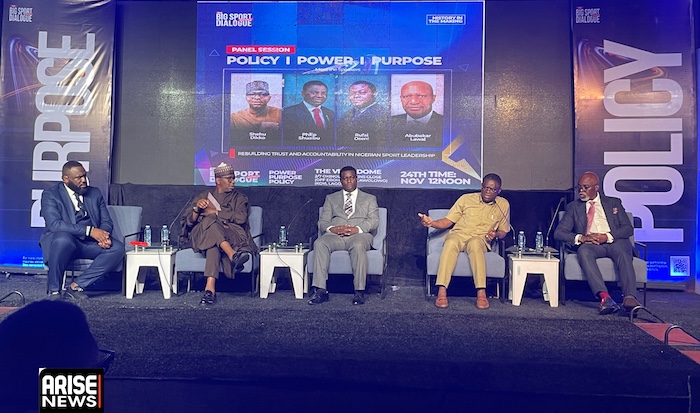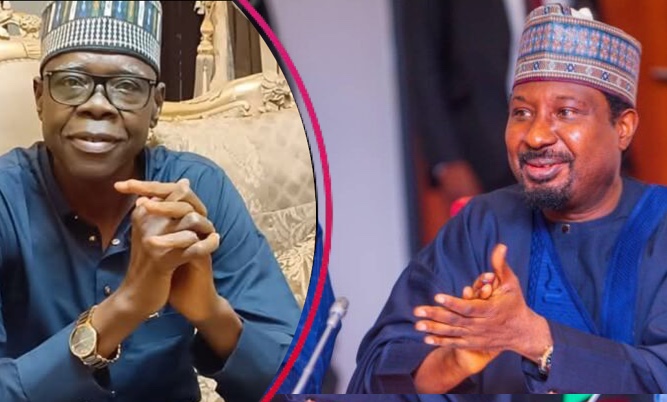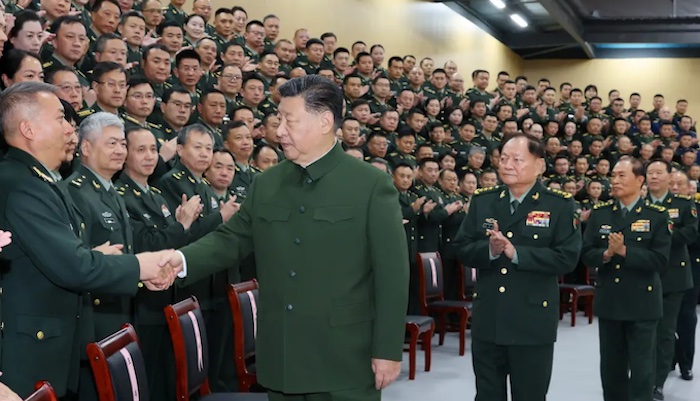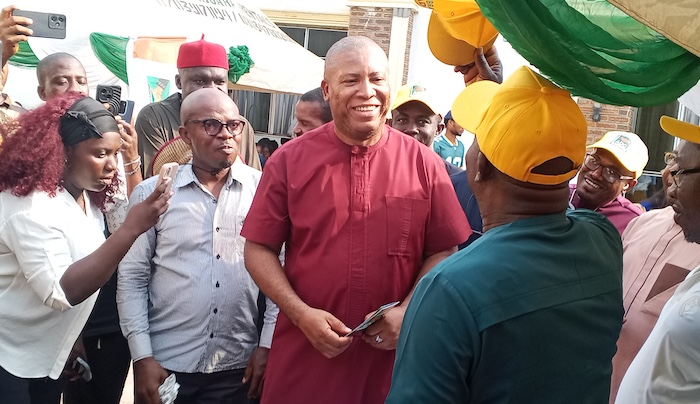
Stakeholders at the maiden Big Sports Dialogue in Lagos have called for urgent action on policy recommendations to prevent the forum’s outcomes from becoming yet another unimplemented set of sports sector proposals.
The event, held on Monday in Ikoyi, brought together senior officials from the National Sports Commission, National Institute for Sports, administrators and media professionals for a review of sports governance, reforms and institutional accountability.
Director General of the National Sports Commission, Bukola Olopade, said the first edition delivered significant insights for the sector. “In addition to this dialogue, I believe there were a lot of takeaways for all stakeholders that were present today,” he said. “I’m particularly very glad he gave me the opportunity to speak to people and to engage and to explain the length that government has got in shaping up and shaking up the sporting arena. So to that extent I want to say great job by Aaron and the organisers.”

Olopade said strong media coverage showed the dialogue’s value, but warned that the real challenge remained executing suggestions made at such forums. “You can see the media’s unanimously covered this and that speaks to the value that this event has garnered in its first year,” he said. “The problem we are having is at most times when we have this type of dialogue, implementation of some of the recommendations becomes a problem. So what is the commission going to do to make sure that some of the things here are implemented? For us at the NSC, we are already in tandem with some of the suggestions and you heard when I spoke on the issue of raising brand visibility, issue of raising market value for sport, just literally speaking to the private sector on what I know to be the truth.”
A key topic at the event was women’s inclusion in sports governance. Olopade said the Commission had acted after discovering major gender imbalances within sports federations. “You discover that there is really nothing that was discussed in terms of the media and women that we are not already embracing,” he said.

“A federation would have out of 15 members, a federation would have 14 men and just one woman or 13 men and one woman and we thought at this time of inclusivity, at this time of empowering our women, there was need for us to increase constitutionally their numbers in the federation. We look at some federations today now, you have 6-7 women in a federation and I feel that was spoken to by a lot of the panelists today, especially when the issue of media governance and women was discussed.”
Olopade added that the dialogue’s themes aligned with the government’s sports development agenda. “I sat down there feeling very proud of what we have done at the NSC because it was in tandem with what the panelists were talking about and for us, we can only continue to grow sports the way Mr. President wants us to grow it,” he said.
“We can only continue to create an ecosystem that empowers all. Today’s event is instructive. Aaron put this event together as an entrepreneur. Has he made profit or not? Whether he may uncover or invisibility, he has made profit. This is part of what Mr. President is talking about and every time I’ve been interviewed by you all, I’ve always said Mr. President wants money in the pocket of sports journalists, he wants money in the pocket of indigent Nigerians, he wants money in the pocket of athletes He wants money in the pocket of sports entrepreneurs and we are achieving all of that.”
Director General of the National Institute for Sports, Philip Shaibu, stressed that implementation must take precedence over repeated conferences. “When you don’t discuss, you don’t know what it is and you don’t get the feeling and feedback,” he said.

“In as far as I feel that we need to now start implementing than having workshops. I strongly believe that Nigerian problem is not workshops. Nigerian problem is implementation of the products or outcomes of these workshops.”
He added that lack of political will had stalled many existing policies. “There are a lot of beautiful policies that are there in the shelves of different offices but are not being implemented,” he said. “Our problem in Nigeria is not, like I said, it’s not lack of policies. It’s lack of political will and courage to implement those policies and that is what the president wants to change.”
Shaibu said efforts were already underway to modernise the curriculum and strengthen academic programmes at the Institute. “I discovered that the road that I met there, 50 years after, is now we are doing a roadmap and strategic plan to grow NIS. So that has been the problem of Nigerian sports. When the engine of the car is not functioning well, how do you expect the car to move?” he said.
He added: “That document that I produced, that roadmap document for 10 years, the curriculum of NIS, we are changing it and we started a test run in the last quarter, in the basic courses. We are bringing in new courses like diving, new courses like sports scouting. We are bringing them in and data gathering is key. We are opening up our data system and in the next two years, we’ll be having elite courses which will be online. So you don’t need to come to our facility to have those courses.”
Chairman of the National Sports Commission, Shehu Dikko, said the dialogue formed part of the Commission’s mandated consultation process with stakeholders.

“We have a system, not just the commission, the entire government of Nigeria. Every agency of government is supposed to have at least one stakeholder, to have what we call a stakeholder consultation,” he said.
“So what we see here is part of the stakeholder consultation, because we are here now, we are interacting with the stakeholders, so we can feel their pulse, we can see what they are feeling, we can also take the suggestions and the ideas, and the contrary views, and the analysis of what we are doing.”
He said the Commission had already set up a team to document the discussions. “Yeah, of course. We are part and parcel of the organization. We support it,” he said.
“Already there is a team who are supposed to document what has been said here, and come up with what we call white paper or to call it as a paper of what are the issues that were identified, what was said, so that it can be circulated, circulated not just to us in government, but also the people to see.”
Dikko also emphasised the role of data in shaping future reforms. “Everything was part and parcel of it. That’s why we are all here. I’m here, the DG is here, my staff are here, even the people from the policy, office of the federal government are here,” he said.
“I can tell you, my final take on all this is that there is a lack of data in this country. If we had data, a positive conversation would not happen. So now, part of the work we have done is that we are working with the central delivery unit, we have set up a clear data sheet for sports, where every quarter we will analyse the impact of sports in Nigeria.”
Faridah Abdulkadiri


